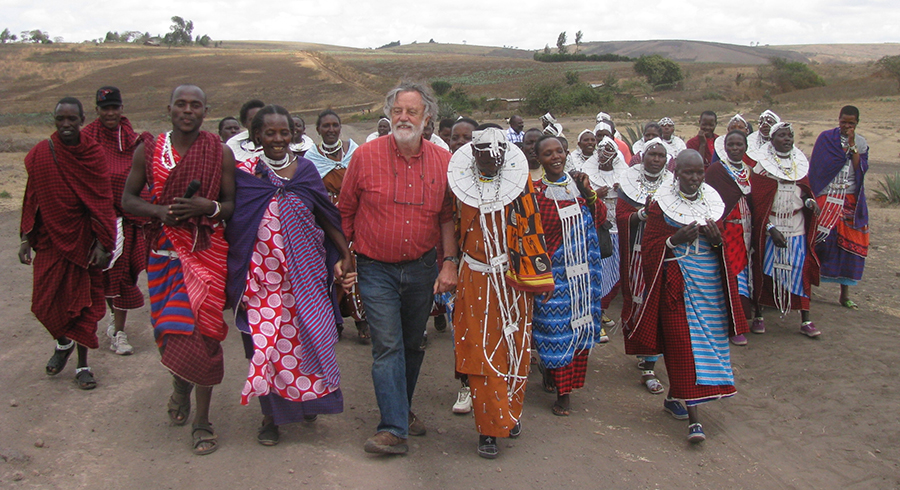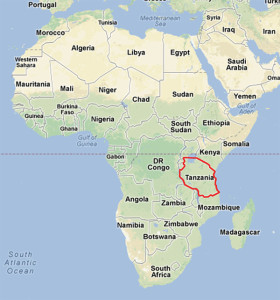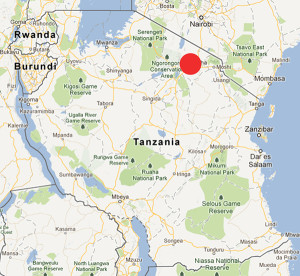Welcome to the Maasai Stoves & Solar Project
Since 2009, we’ve been the primary focus of the International Collaborative, also known as the ICSEE, or the International Collaborative for Science, Education, and the Environment, a non-profit 501(c)(3) organization.
Working together for a better life

Reaching for the light
The Project works on a growing number of issues that concern the people, providing opportunities for them to organize, especially Maasai women. Through full community participation, there is enjoyment and sustained appreciation for working together to make life better. As Project involvements increase, so do opportunities for learning, economic development, and for the joy of successful community action. In addition to work with stoves and solar expanding projects include women’s organizing and economic development, water sanitation, and climate change adaptation demonstrations. These are through agriculture at the Smart Farm and livestock at the Manyara Feedlot and the Fodder Factory.
What does a better life look like?

Safe, clean water
Healthy homes—A good cookstove in a Maasai unventilated house requires a chimney and expert installation. Teams of women in each village receive training and participate as these experts. In addition, we manufacture ICSEE steel stove fireboxes in our local factory. In the process, a team of metalworkers gains skills and is able to accomplish more in metalwork for the whole community.
Shared electricity and light at night— A micro-grid in a boma requires even more installation. The people need to install light switches, and phone charger installation in each home, underground wires to the houses, and a panel, battery and controller installed in the electric center of the settlement. This is an opportunity to teach about electricity and energy, and to train and organize groups of Maasai experts in solar powered system installation
Clean water—Polluted surface ponds are the water source for many rural people, leading to serious health challenges. ICSEE designed and installed pond-side chlorination systems. This means Maasai installation teams and chlorination system managers learn to use chemicals in the proper and effective way required for safe water.
Responding to climate change impact— The loss of the predictability of rain patterns challenges secure grazing for Maasai cattle. In response, the ICSEE constructed construct a demonstration cattle feedlot. and a Fodder Factory for necessary supplementation. We also established the Smart Farm with solar-powered pumping of groundwater, demonstrating irrigation opportunities. Both the livestock and agricultural demonstration locations mean increased employment and cooperation in facility design and development.

Installing an ICSEE stove
Responding to health challenges
Throughout the world, wherever biomass (wood, charcoal, or dung) is burned for cooking there is an epidemic of respiratory disease, eye irritation, and severe forest degradation.
These problems are especially severe for the Maasai of East Africa whose homes are small and poorly ventilated. The open cooking fires in the center of their tiny living spaces not only create indoor air pollution but they also pose a serious threat for burns, especially for toddlers.
Focusing on local solutions and women’s empowerment, the Maasai Women’s Installation Team builds the chimneys and installs the stoves and solar systems. The Maasai Stoves & Solar Project manufactures the stove’s metal parts right in the area, stimulating the economy and providing opportunities for the people. We import the photo-voltaic systems but produce stoves locally.

Maasai Stoves & Solar by the numbers
- More than 7,000 stoves have been installed including the replacement of older models with the excellent durable ICSEE models three and four
- 35,000 people in healthier homes because of the stoves with excellent smoke-removal efficiency
- Each stove lowers carbon dioxide emissions by 3.6 tons per year
- 65 bomas now have solar micro-grids installed. Homes not on micro-grids have single- home solar-electric systems
- The International Collaborative currently serves more than thirty Maasai villages
- 350 women in the Maasai women have become expert stoves installers
- Over 700 widows in groups of financial cooperating women organized for life improvement
- 600 goats and 400 cows fattened and sold by the widows’ group
Read more about our work and impact
- Significant improvements to the health of the people
- Conserving the environment by lessening amount of wood fuel needed, through stove efficiency
- Economy stimulated through large-scale purchases from local businesses
- Project leadership capacity developed in the Maasai communities
- Women broaden skills and capabilities and become leaders of new powerful activities
- Applying known successful technologies, such as water chlorination, guarantees benefits
- Stove designed in the field results in the right design, eliminating stove abandonment
- Livestock and agriculture management innovations and modeling experiments help prepare adaptations to a changing environment and social structure

ICSEE stove factory staff
Staff and resources
Monduli Town, Arusha is home to the Maasai Stoves & Solar Project headquarters, with a Project Hub in Mto wa Mbu. Project work takes place in Monduli, Longido, Simanjiro, and Ngorongoro districts.
Transportation resources include a Land Cruiser, a Land Rover and two small Suzuki sedans. The ICSEE also has a tractor, water trailer, several motorcycles, and a small freight motorcycle.
Each participating village has a team of five to fifteen women who are expert stove installers.
A team of twenty men and women are the expert micro-grid installers. Once arrangements are confirmed with the settlement owner, the team can install a micro-grid in one day.




